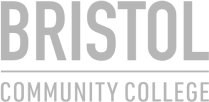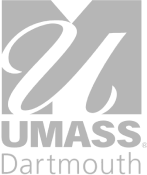Microaggression refers to a brief and commonplace verbal, behavioral, or environmental indignity, whether intentional or unintentional, that communicates hostile, derogatory, or negative messages to target persons based solely on their marginalized group membership.
Microaggressions Training Module
Select a practice tier below to begin facilitator-led training.
PERSONAL REFLECTION45 Minutes
- Review definition pertinent definitions followed by the guided personal reflection where staff are asked to review implementation guide definitions of microaggressions and reflect on their experience with them in the workplace.
- Staff are encouraged to consider ways in which their own biases and assumptions may contribute to their enactment of/ or experience with microaggressions.
CONVERSATIONS1 Hour
- Staff will engage in facilitated discussions about the relationship between implicit bias and microaggressions.
- Staff will discuss the impact of microaggressions on students of color in the offices where they work, and how they identify, address, interrupt, and prevent them.
ACTIVITIES30 Minutes
- Identifying Microaggressions
- Participants could be given a list of microaggressions and asked to identify which ones they have experienced or witnessed.
- Challenging Microaggressions
- Participants could be given a scenario involving a microaggression and asked how they would respond.
- Developing a Plan
- Participants could develop a plan for how they can be more inclusive and supportive of students of color in their own role as staff.
ACTION PLAN30 Minutes
- Each participant develops a personalized action plan outlining specific steps they will take to address microaggressions and promote inclusive teaching and research practices.
- Sharing action plans and collaborating on potential areas of synergy.
FOLLOW UP
- Access to the BU ARE/ DEI repository of research articles and resources on microaggressions, culturally relevant teaching, and responsive research methods.
- Organizing research-focused seminars or webinars to explore the latest developments in the field.
- Establishing a community of practice for instructional staff and professors to share research findings and collaborative projects related to microaggressions and inclusive practices.
Microaggression Resources
Personal Reflection45 Minutes
- Review pertinent definitions followed by guided personal reflection where instructional staff examine their own biases and potential microaggressions in teaching, mentoring students, and research as well as their own experiences with microaggression as perpetrator or victim.
- Instructional Staff are encouraged to consider how their own biases and assumptions may contribute to microaggressions inside and outside of the classroom.
CONVERSATIONS1 Hour
- Case Studies and Role-playing Scenarios
- Instructional staff engage in simulated conversations to practice recognizing and addressing microaggressions in diverse academic contexts.
- Facilitated Discussions
- Instructional staff explore research-backed communication strategies to respond effectively to microaggressions while promoting inclusivity in the classroom.
ACTIVITIES30 Minutes
- Similar activities to included for Staff, plus:
- Instructional staff consider research findings on best culturally relevant teaching practices and their impact on student engagement and success.
- They practice inclusivity by incorporating diverse perspectives and experiences into course content and classroom interactions.
- They rework their syllabus to reflect the diverse nature of their students or region.
- They identify research opportunities to investigate the impact of microaggressions and the effectiveness of intervention strategies.
ACTION PLAN30 Minutes
- Each participant develops a personalized action plan outlining specific steps they will take to address microaggressions and promote inclusive teaching and research practices.
- Sharing action plans as a group and collaborating on potential areas of synergy.
FOLLOW UP
- Access to the BU ARE/ DEI repository of research articles and resources on microaggressions, culturally relevant teaching, and responsive research methods.
- Organizing research-focused seminars or webinars to explore the latest developments in the field.
- Establishing a community of practice for instructional staff and professors to share research findings and collaborative projects related to microaggressions and inclusive practices.
Microaggression Resources
PERSONAL REFLECTION45 Minutes
- Review definition pertinent definitions followed by guided self-reflection activity where educational leaders and managers review implementation guide definition for microaggressions and examine their own biases and potential microaggressions in their leadership roles.
- Small Group Discussions
- Sharing insights and experiences, fostering empathy, and identifying areas for growth.
CONVERSATIONS1 Hour
- Managers/Leaders engage in facilitated discussions about the implicit bias/microaggression interface.
- Leaders can engage in simulated conversations to practice recognizing and addressing microaggressions in various academic and administrative contexts.
- Leaders can explore research-backed communication strategies to respond effectively to microaggressions and promote inclusivity.
ACTIVITIES30 Minutes
- Similar activities as included for Staff and Instructional Staff, plus:
- Leaders can reflect on and plan to promote racial equity on campus.
- Leaders can search for, identify, and provide support for and resource professional development strategies and best practices centered on achieving racial equity within the institution.
ACTION PLAN30 Minutes
- Each participant develops a personalized action plan outlining specific steps they will take to address microaggressions and promote inclusive teaching and research practices.
- Sharing action plans as a group and collaborating on potential areas of synergy.
FOLLOW UP
- Access to the BU ARE/ DEI repository of research articles and resources on microaggressions, culturally relevant teaching, and responsive research methods.
- Organizing research-focused seminars or webinars to explore the latest developments in the field.
- Establishing a community of practice for instructional staff and professors to share research findings and collaborative projects related to microaggressions and inclusive practices.
Microaggression Resources





